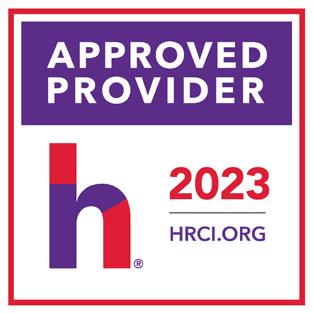Education Matters











Petitioner Miguel Luna Perez (Perez), a deaf student, attended schools in Michigan’s Sturgis Public School District (District) for twelve years. After the District notified Perez he could not graduate, he filed an administrative complaint against the Michigan Department of Education alleging the District failed to provide a free and appropriate public education as required by the Individuals with Disabilities Education Act (IDEA). Perez alleged the District supplied him with aides who did not know sign language and were not qualified to communicate in sign language, and left him without interpreters for hours at a time. Additionally, he claimed the District misrepresented his educational progress by awarding him higher-thanearned grades and advancing him from grade to grade. The District told Perez that he was on track to graduate with his class. However, months before graduation, the District informed Perez and his family that it would not be awarding Perez with a diploma. Shortly before the administrative hearing, the District and Perez reached a settlement where the District promised to provide Perez with the forward-looking equitable relief he sought, including additional schooling.
After settling the administrative complaint, Perez sued the District in federal district court under the Americans with Disabilities Act (ADA) seeking damages against the District. The District moved to dismiss the case, arguing that Perez cannot assert his ADA claim because of a provision in IDEA, 20 USC § 1415(l) barred from bringing the ADA claim without
first exhausting all of IDEA’s administrate dispute resolution procedures. The federal district court agreed and dismissed Perez’s suit. On appeal, the Sixth Circuit affirmed the district court. However, because the courts of appeals have disagreed on how to interpret the IDEA, the U.S. Supreme Court heard the case.
The Supreme Court noted that nothing in IDEA shall be construed to restrict the ability of individuals to seek remedies under the ADA or other federal laws protecting the rights of children with disabilities. However, the IDEA also prohibits certain lawsuits from being filed prior to exhausting administrative processes. The District argued that the law bars Perez’s ADA suit because it seeks relief for harms flowing from the District’s alleged past shortcomings, and Perez chose to settle his administrative complaint rather than exhaust the administrative processes. Perez argued that because the IDEA does not provide for compensatory damages, the IDEA does not foreclose his ADA claim against the District.
The Supreme Court held that the IDEA’s exhaustion provisions do not bar Perez’s ADA claim because the relief he seeks (i.e., compensatory damages) is not a remedy that the IDEA can provide. The Supreme Court reversed the Court of Appeals and remanded the case for further proceedings consistent with its opinion.
In November 2020, the University of California, Santa Cruz (University) sent a letter to its union leaders and representatives announcing that beginning with winter quarter 2021, it would prohibit employees from concurrently holding academic instructor appointments that are exempt from the federal Fair Labor Standards Act (FLSA) and non-instructional staff appointments that are not exempt from the FLSA. The University Council-American Federation of Teachers (UCAFT) filed an unfair practice charge alleging that the University violated the Higher Education EmployerEmployee Relations Act by unilaterally changing its concurrent appointment policy and modifying the NonSenate Faculty bargaining unit without complying with the parties’ collective bargaining agreement or PERB’s unit modification regulations.
The Public Employee Relations Board (PERB) found that the University made an unlawful unilateral change by implementing a new concurrent appointment policy without providing UC-AFT notice to negotiate over the decision. To prove that unlawful unilateral change occurred, UC-AFT must show: (1) the employer changed the status quo; (2) the change concerned a matter within the scope of representation; (3) the change had a generalized effect on represented employees’ terms of employment; and (4) the employer reached its decision without first providing adequate notice.
The University sent a letter acknowledging there were “many employees on campus with multiple staff or academic appointments which cross bargaining units and FLSA statuses.” The letter did not, however, indicate the University was considering a prohibition against concurrently holding a non-exempt staff position and an exempt academic position. Moreover, PERB found that the University’s decision to adopt a prohibition against concurrent appointments in FLSA exempt and nonexempt positions was within the scope of representation because it involved the employment relationship, it was of concern to both management and employees, and the employer’s obligation to negotiate would not abridge its freedom to exercise prerogatives essential to the employer’s mission.
Therefore, PERB found in UC-AFT’s favor and ordered the University to rescind its policy that prohibited employees at the University from concurrently holding a non-exempt staff position and an exempt academic position.
Regents of the University of California, PERB Decision No. 2852H (February 9, 2023).
To Our Labor Relations Certificate Program Recipients!

The following received their certificates at the LCW Conference earlier this month:
Nicholle Collins
Dawud Brewer
Omar Castro
Karen Gish
Monique Goetz
Cora Hall
Carrie Hanes
Emily Milne
Hayley Schwartzkopf
Miguel Serna
Jennifer Sommers
JoAnn Weberg
Denise Gonzalez
Cherie Johnson
The LCW Labor Relations Certification Program is designed for labor relations and human resources professionals who work in public sector agencies. It is designed for both those new to the field as well as experienced practitioners seeking to hone their skills. Participants may take one or all of the classes, in any order. Take all of the classes to earn your certificate and receive 6 hours of HRCI credit per course!

Benefits of Certification to the Participant:
• Increase knowledge in all areas of Labor Relations
• Increase your value to your agency
• Increase respect and recognition in the field
• Increase opportunity for upward mobility
• Increase marketability and ability to compete in the job market
• Increase professional credibility

Benefits of Certification to the Agency:
• Increase the level of competency of the individual
• Encourage and improve job performance
• Acknowledge an individual who has developed a high level of professionalism
• Use as an aid for retention and recruitment
Join our upcoming HRCI CertifiedLabor Relations Certification Program Workshops:
Employment Relations Board (PERB) Academy
Visit our website: www.lcwlegal.com/lrcp
The use of this official seal confirms that this Activity has met HR Certification Institute’s® (HRCI®) criteria for recertification credit pre-approval.

On February 28, 2023, the U.S. Supreme Court heard oral arguments on two cases challenging President Biden’s plan to forgive $400 billion in federal student loans. Since the Biden administration released its plan to forgive up to $20,000 per eligible borrower, federal injunctions have blocked the pathway to loan forgiveness. The Plaintiffs are six states that challenged the loan relief program, arguing that the Biden administration does not have the power to wipe out significant student loan debt without Congress’s authorization. The Biden administration defends the policy on the grounds that the President has authority

to cancel student debt under the Higher Education Opportunities for Students Act of 2003, or the “HEROES Act.” The Heroes Act, enacted in 2011 after the September 11 attacks, gave the U.S. Department of Education the power to make changes to the federal loan system during national emergencies.
More than 26 million borrowers have already applied for relief under President Biden’s student loan forgiveness plan. U.S. Secretary Cardona released a statement commending the “powerful defense” brought before the Court. He explained that relief is essential for American borrowers after the economic crises caused by the pandemic. The pause on student loan payments is ongoing, and LCW continues to monitor updates on this case.
Biden v. Nebraska (2022) 143 S. Ct. 477 and Department of Education v. Brown (2022) 143 S. Ct. 541.
Jenai Howard, an associate in the San Francisco office, advises clients on education, labor and employment matters. Prior to joining LCW, Jenai worked as a Research Assistant for two Professors at Santa Clara University School of Law where she conducted various kinds of legal research and co-authored a Criminal Law casebook.
Kimberly Horiuchi, an associate in the Sacramento office, works primarily in the Firm’s Litigation practice group where she represents clients in employment litigation matters. She also focuses on providing trusted advice and counsel to organizations throughout the State and has extensive experience in conducting workplace investigations.

On February 15, 2023, the Department of Education (DOE) issued guidance (Guidance) expanding the DOE’s oversight and regulation of agreements between districts receiving Title IV funding and third-party servicers that administer the Title IV programs. The Guidance expands the DOE’s existing interpretation1 of ‘thirdparty servicer’ by including entities that perform functions or services necessary to provide Title IV-eligible educational programs. In elaborating on this addition, the Guidance states that “entities performing the functions of student recruiting and retention, the provision of software products and services involving Title IV administration activities, and the provision of education content and instruction are defined as third-party servicers” that now require the oversight of the DOE.
This Guidance will require districts to carefully review their existing contracts to assess whether any services provided by a third party will now be subject to the DOE’s oversight. Contracts deemed to fall within the scope of the third-party servicer regulations will need to be reported to the DOE and modifications will likely need to be made to the existing contracts.
Vendors that provide the following functions and services will now be considered ‘third-party servicers’ under the new Guidance2:
• Interacting with prospective students for purposes of recruiting;
• Processing admissions applications;
• Establishing or modifying admissions standards; or
• Processing financial aid applications.
• Monitoring academic engagement and daily attendance;
• Conducting outreach to students regarding attendances; or
• Responding to inquiries from students and families regarding resources to maintain enrollment.
• Collecting, reviewing, and/or maintaining the information and/or documentation necessary to support student eligibility determination or disbursement of Title IV funds; or
• Providing computer services or software in which the provider has access to, or has control over systems needed to administer Title IV programs, including but not limited to, financial aid management, recruitment, enrollment, admissions, registration, billing, and learning management.
1 Existing DOE guidance interpreted the definition of third-party servicer to cover entities that provide functions or services necessary: (1) for the district/institution to remain eligible to participate in the Title IV Programs; (2) to determine a student’s eligibility for Title IV funds; (3) to account for Title IV funds; (4) to deliver Title IV funds to students; and (5) to perform any other aspect of the administration of the Title IV programs or comply with the statutory or regulatory requirements associated with those programs.
2 The Guidance also provides examples of services and functions that, if performed, would not qualify a vendor as a third-party servicer and states that the list is not exhaustive.
• Establishing requirements for the completion of courses;
• Establishing whether course requirements have been satisfied;
• Delivering instruction or mandatory tutoring;
• Assessing student learning; or
• Developing curricula or course materials (unless the district maintains full control and delivers instruction itself).
Due to the expansion of the oversight, it is important to note what entities may or may not perform the above outlined services. According to the regulations and the Guidance, third-party servicers must be qualified to enter into contracts with districts. Specifically, districts may not contract with a third-party servicer that (1) was limited, suspended, or terminated by the Secretary of Education within the preceding five years; (2) has during the last two audits, an audit

finding that resulted in the servicer being required to repay an amount greater than five percent of the funds administered under the Title IV programs for any award year; or (3) was cited during the preceding five years for failure to submit audit reports required under Title IV of the Higher Education Act in a timely fashion. Additionally, the third-party servicer may not be located outside of the United States or be owned or operated by an individual who is not a United States citizen or a national or lawful permanent resident.
This Guidance will not become effective until September 1, 2023. Further, additional revisions may
be made to the Guidance subject to comments received from districts and other impacted institutions during the comment period. However, districts should begin reviewing their existing contracts to see if any of the services provided under those contracts will put the provider within the new expanded definition of third-party servicers. The Guidance further identifies that if a district does not know if a service provider is subject to thirdparty servicer requirements, the district should contact its School Participation Division.
NOTE:
Please contact LCW if you have any questions about, or need assistance complying with, the new Guidance.
An LCW team led by Partner Morin Jacob and Associate Nathan Jackson won the dismissal of a lawsuit against a fire district client. In October 2018, a fire district hired its interim fire chief as its fire chief under a two-year employment contract. During this time, the fire district was investigating misconduct allegedly committed by the previous fire chief. The new fire chief assisted with numerous investigations into issues regarding his predecessor.
At some point during his employment, allegations surfaced that the fire chief discriminated against a fire district employee based on age. The fire district then investigated the fire chief. On July 27, 2020, the district informed the chief his employment contract as fire chief would not be renewed and would expire on October 3, 2020.
On November 30, 2020, the now-former fire chief’s attorney sent a demand letter to the fire district’s counsel: accusing the district’s board of retaliation by not renewing the fire chief’s employment contract; demanding three years of salary as damages; and asking the board to rescind its decision to allow the employment contract to expire. The former chief filed a complaint alleging retaliation on February 7, 2021.
On September 2, 2021, the fire district’s attorneys informed the former chief’s attorneys of the district’s intention to file a motion for judgment on the pleadings on the grounds that the chief had not filed a timely governmental claim as required by the Governmental Claims Act (GCA). On September 9, the former chief
filed a petition to be relieved of the GCA requirements, arguing that his attorney’s settlement demand letter substantially complied with them.
While his petition to be relieved from the GCA was pending, the former chief amended his retaliation lawsuit to allege that his November 30 demand letter substantially complied with the GCA. The trial court denied the chief’s petition, finding that the settlement demand letter did not substantially comply. The district once again filed a motion to dispose of the complaint for failure to comply with the GCA. This time, the trial court granted the motion without offering the former fire chief an option to amend. The chief appealed to the California Court of Appeal.
The Court of Appeal upheld the trial court’s decision. First, the Court noted that case law has consistently held that: 1) a document must be submitted to the specific address and/or individual that the governmental agency has specified in its claims procedures to be accepted as a claim; and 2) communications addressing the potential settlement of a claim do not meet the requirements of the GCA. The Court found that the former chief’s November 30 demand letter fell under this “settlement” umbrella, and did not meet the GCA requirements. In addition, the chief did not provide the letter to the appropriate individuals at the designated address. Thus, the letter was not a valid claim.
The Court also noted that former chief’s petition to be relieved of the requirements of the GCA simply repeated that the November 30 demand letter substantially complied with the GCA. The Court found the chief failed to offer any evidence why he should be excused to file a late claim. Therefore, the case was dismissed.
An LCW team led by Partner Geoff Sheldon, Senior Counsel Dave Urban, and Associate Daniel Seitz won the dismissal of a lawsuit against the County of Los Angeles. When a lawsuit is filed, the entity being sued has options. One option is for the entity to answer the complaint to tell its side of the story and to litigate the case. Another option is to file a motion to dismiss, which asserts that even if all the allegations in the lawsuit are true, there is still no cause of action. The latter option is very challenging. Even if a court grants the motion, the court usually gives the person suing an opportunity to try again to file a successful lawsuit.
The LCW team took the more challenging option and won. Here, County employee Michael Craine joined Local 119 of the American Federation Of State, County, And Municipal Employees Council in 1999. Craine later decided to withdraw from the union. He sent a letter to Local 119 on January 19, 2022. Craine’s letter withdrew his authorization for the union to deduct his dues from his paycheck.
After Local 119 refused to process his request until a later time, Craine filed a lawsuit. Craine alleged that taking the dues deductions without his permission violated his constitutional right to decide whether to fund political speech. Upon receiving the lawsuit, Local 119 cancelled Craine’s dues deduction and mailed Craine a check reimbursing him for dues deducted after January 19, 2019, along with interest on that amount.
Geoff, Dave, and Daniel filed a motion to dismiss alleging that Craine’s lawsuit was moot. To proceed in federal court, Craine needed to prove: he was injured because of another’s conduct, there was a causal connection between his injury and the conduct, and his injury could be redressed by a court.
Here, Local 119 stopped its dues deductions once Craine sued, refunded the dues it deducted, and provided him interest on the dues deductions. As a result, Craine had no ongoing injury and a moot lawsuit. Once the LCW legal team learned these facts they immediately moved for dismissal. The judge then granted the dismissal without leave to amend. This helped the County avoid time-consuming and expensive discovery and trial.
An LCW team led by Partner Suzanne Solomon and Associate Abigail Clark won an appeal in the U.S. Court of Appeals for the Ninth Circuit on behalf of a city client.
The case arose after a police officer was released on probation. A public outcry had occurred in the wake of the discovery that the officer had been charged with excessive use of force in his prior employment. The police officer sued the city, alleging that his release was an arbitrary and capricious government action that violated his substantive due process rights.
To prevail on a substantive due process claim, the police officer had to show that his government employer took specific action, such as a governmental “blacklist”, that effectively excluded him from his chosen profession of law enforcement. The Ninth Circuit agreed with the District Court that the officer had failed to allege that: he had been blacklisted from the police force; and the city was otherwise responsible for the public outcry over his hiring. The Ninth Circuit affirmed the district court’s denial of leave to amend, concluding that the District Court had acted within its discretion in determining that leave to amend would be futile.
An LCW team led by Partner James Oldendorph and Associates Aleena Hashmi and Lee Heard won the dismissal of a lawsuit against a city client. A fire inspector had knee replacement surgery in November 2016. On April 21, 2017, he was cleared to work with no work restrictions. His city employer scheduled a Functional Capacity Evaluation (FCE) to determine whether he could safely work.
In April 2017, the inspector returned to light duty at his same salary, seniority, and benefits. In May 2017, the FCE confirmed the inspector did not need any
work restrictions or accommodations. The inspector’s treating physician concurred with the FCE.
In June 2017, the inspector returned to work without any restrictions, and signed a Full Duty Work agreement confirming he needed no accommodations, and would tell his supervisor immediately if he: suspected he might need accommodations in the future; or believed any job activity was unsafe or painful; or needed additional leave.
In October 2021, the inspector sued the city alleging age and disability discrimination and failure to accommodate. The inspector alleged that his medical leave was extended in 2017 because no light duty work was available while he was awaiting the results of the FCE, and that his workload doubled when he returned. He also alleged that throughout his tenure his coworkers repeatedly asked him when he was going to retire. The inspector claimed these actions led to his constructive discharge.
The Court granted the city’s Motion for Summary Judgment dismissing all of the inspector’s claims. The Court found no substantial evidence of any discriminatory animus or any adverse employment actions.
First, the Court found that the inspector’s failure to accommodate claim was time-barred by the threeyear statute of limitations. The Court also rejected the inspector’s claims that the City failed to engage in the interactive process and failed to accommodate him by reducing his double workload. The inspector admitted that due to technical computer issues he was not expected to, and did not actually complete, a double workload. Nor did the inspector ever complain about it. The inspector also failed to identify anyone to whom he made accommodation requests, or that he ever asked his supervisor for an accommodation as required by his Full Duty Work agreement.
Second, the Court noted that the co-worker comments and questions about retirement age are commonplace. The inspector admitted there was a similar dynamic at the City, and that his coworkers frequently discussed how retirement was a perk. The Court further noted that none of the alleged comments amounted to adverse actions in and of themselves, nor did they lead to or relate to any City-imposed adverse employment actions.
Finally, the inspector also failed to prove that his working conditions were so intolerable, aggravated, or severe to force a reasonable person to retire.
Pricing: $2,000 per person. ($1,800 for consortium members).
To learn more about our program, please visit our website or contact Anna Sanzone-Ortiz 310.981.2051 or asanzone-ortiz@lcwlegal.com.
From 2014 to 2017 Michael Hewitt worked for Helix Energy Solutions Group on an offshore oil rig. Hewitt typically worked 12 hours a day, 7 days a week for 28 days. He would then have 28 days off. Hewitt oversaw various aspects of the rig’s operations and supervised 12-14 workers.
Hewitt’s pay consisted of his daily rate (about $1,000 a day) multiplied by the number of days he worked. So if Hewitt worked only one day in the work week, he received about $1,000 a week. If Hewitt worked seven days in the work week, he received about $7,000 that week. He was not paid overtime. This pay arrangement computed to over $200,000 a year.
Hewitt sued Helix seeking overtime pay under the Fair Labor Standards Act (FLSA). The issue was whether Helix had paid Hewitt on a salary basis. If not, Hewitt would be entitled to overtime pay.
The FLSA guarantees that covered employees receive overtime pay when they work more than 40 hours a week. But an employee is excluded from overtime pay requirements, if he works “in a bona fide executive, administrative, or professional capacity,” as defined in the FLSA regulations. The regulations allow an employer to exclude an employee from overtime pay if the employee: 1) is paid on a “salary basis”; 2) is paid at least $455 a week (that minimum amount is now $684 a week); and 3) performs high-level job duties that fall into at least one of several regulatory categories.
Still another way an employer can exclude an employee from overtime is under another FLSA regulation regarding highly-compensated employees (HCE) who make more than $100,000 a year. Under the HCE regulation, there is a higher income threshold and a shortened list of required duties, but the salary basis rule remains the same.
The FLSA regulations give an employer two general options for paying an employee on a “salary basis”: 1) pay the employee a predetermined amount of pay every work week, even if the employee only works part of that work week (29 CFR Section 541.602(a)); or 2) pay the employee a hourly, daily or shift rate that is guaranteed to be no less than $455 (now $684) a week regardless of the number of hours worked, and the guaranteed amount must be roughly equivalent to the usual earnings for the employee’s normally-scheduled work week. (29 CFR Section 541.604(b)).
Justice Kagan explained that these FLSA salary test regulations “create a compensation system functioning much like a true salary—a steady stream of pay, which the employer cannot much vary and the employee may thus rely upon week after week.”
Helix acknowledged that Hewitt’s compensation did not meet the second option under the FLSA regulation 29 CFR Section 541.604(b). Thus, the Court focused on whether Helix paid Hewitt on a salary basis under the first option described in the FLSA regulation at 29 CFR Section 541.602(a).)
The Court decided Hewitt was not paid on a salary basis. This is because the amount of his pay was subject to reduction because of variations in the quantity of work he performed each week. The Court noted that a daily-rate worker’s weekly pay is always a function of how many days the worker has labored; as a result, the weekly pay is not a predetermined amount. A salaried employee, conversely, receives at least his or her same salary for any week in which any amount of work is performed. Hewitt, however, would only receive his salary pro-rated to how many days in the pay period he worked. Hewitt, therefore, was a non-exempt employee entitled to overtime compensation.
Helix Energy Solutions Group, Inc. v. Hewitt (U.S., Feb. 22, 2023, No. 21-984) 2023 WL 2144441.
Note:
This case illustrates the high stakes involved in FLSA overtime-exemption cases. This employer appeared to believe that paying a high wage would mean it was not required to pay overtime pay. This employer’s mistaken belief resulted in a back pay award of thousands of dollars.
Jennifer Bitner and Evelina Herrera were employed as licensed vocational nurses by the California Department of Corrections and Rehabilitation (CDCR). Their duties included one-on-one suicide watch of inmates. Bitner and Herrera contended that male inmates sexually harassed them, and that CDCR failed to appropriately prevent or correct this behavior. Based on these allegations, the LVN’s filed a lawsuit for gender-based hostile work environment and failure to prevent harassment under the Fair Employment and Housing Act (FEHA).
Government Code Section 844.6 grants immunity to public entities that run prisons, such as CDCR. This immunity states that “a public entity is not liable for … [a]n injury proximately caused by any prisoner.” By asserting this immunity as an affirmative defense, CDCR was saying even if Bitner and Herrera’s allegations were accurate, CDCR could not be held liable because of this immunity. CDCR moved for summary judgment using this theory.
The LVN’s countered that the immunity did not apply to FEHA claims. They also argued that their injuries were not proximately caused by the prisoners and therefore the Section 844.6 immunity was not applicable. The superior court disagreed with both of these arguments and granted summary judgment in favor of CDCR. The LVN’s appealed to the California Court of Appeal.
The Court of Appeal analyzed the alleged exception to Section 844.6 immunity first, explaining that the law outlined a variety of exceptions to the rule of immunity, but that FEHA was not one of the exceptions.
The Court of Appeal then analyzed the second claim –that Section 844.6 was inapplicable to their case because the sexual harassment was not proximately caused by the prisoners. Instead, the LVN’s argued they were injured because CDCR failed to intervene on their behalf. The Court of Appeal noted this argument was farfetched because an injury can have more than one proximate cause. Here, the inmates’ harassing conduct was clearly a proximate cause of the injury of sexual harassment. The Court of Appeal held that summary judgment on this issue was proper.
Bitner v. Department of Corrections and Rehabilitation (2023) 87 Cal.App.5th 1048.
Note:
This case shows the broad scope of the Government Code Section 844.6 immunity. The California Supreme Court has also applied the Government Code Section 820.2 discretionary immunity to bar a superintendent’s FEHA claims against school board members who voted to terminate the superintendent’s contract. Caldwell v. Montoya, 10 Cal.4th 972 (1985).
• Under the ADA and FEHA, an employer is required to initiate the reasonable accommodation interactive process when the employer: 1) knows that the employee has a disability; 2) knows, or has reason to know, that the employee is experiencing workplace problems because of the disability; or 3) knows, or has reason to know, that the disability prevents the employee from requesting a reasonable accommodation.
• Earlier this month, the California Community Colleges Chancellor’s Office and the Foundation for California Community Colleges (FoundationCCC) announced what is expected to be the largest gift to community colleges in the nation to date. The Jay Pritzker Foundation has pledged $100,000,000 over 20 years to the FoundationCCC to support scholarships and emergency financial aid for students at community colleges within regions of California with the lowest educational attainment rates. The California Community Colleges website notes that “the purpose of the gift is to increase student success and help eliminate regional achievement gaps in alignment with goal six of the California Community Colleges Vision for Success.”
• Approximately three years after creating a direct pathway from jail to the classroom, Chabot College has graduated its first cohort of formerly incarcerated students through its Restorative Integrated Self-Education (RISE) program, which was created to support formerly incarcerated and systems impacted Chabot College students.
For more information on some of our upcoming events and trainings, click on the icons below:




Whether you are looking to impress your colleagues or just want to learn more about the law, LCW has your back! Use and share these fun legal facts about various topics in labor and employment law.
Fred Bowerman was a vendor for Field Asset Services, Inc. (FAS), which was a business engaged in preforeclosure property preservation. Under Bowerman’s contract with FAS, he was required to cover his own business expenses. Bowerman filed a lawsuit on behalf of himself and other class members alleging FAS willfully misclassified them as independent contractors rather than employees. One of his claims was the misclassification resulted in FAS’s failure to reimburse him for business expenses.
In March 2017, the district court granted partial summary judgment in favor of Bowerman by finding that the class members had been misclassified as independent contractors and FAS was liable for failing to pay their business expenses. The district court relied on the common law test for distinguishing between employees and independent contractors from S.G. Borello & Sons, Inc. v. Department of Industrial Relations, 48 Cal.3d 341 (Borello test). The Borello test primarily considers whether the hiring entity has the right to control the manner and means of the work and then assesses a number of secondary factors about the service relationship
After FAS appealed the district court’s decision, the California Supreme Court issued a decision in Dynamex Operations West, Inc. v. Superior Court, 4 Cal.5th 903 in 2018, which established the ABC test for distinguishing between employees and independent contractors. The ABC test presumes a worker is an employee and only finds that a worker is an independent contractor if: (A) the worker is free from the control and direction of the hirer; (B) the worker performs work that is outside the
usual course of the hiring entity’s business; and (C) the worker is customarily engaged in an independently established trade, occupation, or business.
The Ninth Circuit held FAS’s appeal in abeyance pending Dynamex. On appeal, FAS argued that the Borello test, and not the ABC test, applied to Bowerman’s reimbursement claim. The Ninth Circuit agreed with FAS. Bowerman’s expense reimbursement claims were based on Labor Code section 2802, which requires employers to indemnify (or reimburse) employees for all necessary expenses incurred in the discharge of duties.
The Ninth Circuit held that Dynamex only applied the ABC test to wage order claims. Since Bowerman’s expense reimbursement claim was rooted in Labor Code Section 2802 and not a wage order, the ABC test did not apply to determine whether class members were employees for purposes of determining whether they were entitled to business expenses reimbursements. Thus, the Borello common law test, and not the ABC test, applies to the expense reimbursement claims. The Ninth Circuit further assessed that there was evidence of both an independent contractor and employee relationship under the Borello test and reversed the district court’s decision that class members had been misclassified.
Bowerman v. Field Asset Services, Inc. (9th Cir. 2022) 39 F.4th 652, amended February 14, 2023.
NOTE:
After the Dynamex case, the Labor Code was amended to apply the ABC test beyond the wage orders, although not to expense reimbursement claims. The ABC test applies to employment status for Workers’ Compensation coverage and Unemployment Insurance coverage.
With the March 31st deadline for electronically filing Forms 1094-C and 1095-C quickly approaching, agencies should maintain a file of records after completing the filings. Keeping a record of the filings will serve to defend the agency in the event the IRS charges the agency with a penalty under for failing to furnish and/or file forms under Internal Revenue Code Sections 6721 and 6722. Employers should retain the following records:
(1) Documentation proving the employer furnished (handed out or mailed) Forms 1095-C to current and former full-time employees by the March 2 deadline.
(2) A copy of all electronic records (Forms 1094-C and 1095-C) within each submission, along with the Receipt ID for each transmission.
(3) A document showing the transmission status when the IRS completes processing. The transmission status should state one of the following: Accepted, Accepted With Errors, Partially Accepted, or Rejected.
(4) If the transmission status is anything but “Accepted,” maintain the Error Data File. The Error Data File contains a detailed list of errors, which are critical to understand for making corrections. Employers should troubleshoot the error and refile the forms without error as soon as possible.

Employers who use a third-party transmitter to file documents should obtain these same records in case the third-party transmitter goes out of business or otherwise becomes unavailable to file corrections for the employer. See IRS Publication 5165 for more information.
Did you know that cash in lieu of health insurance can affect whether your agency offers affordable minimum essential coverage? Cash in lieu is added to the employee’s required contribution for purposes of calculating affordability. The one exception is where cash in lieu is conditioned on an “eligible opt-out arrangement.” To learn more about what constitutes an “eligible opt-out arrangement,” reach out to us.
Each month, LCW will present a benefits timeline of best practices. This timeline is intended to apply to agencies that are applicable large employers for Affordable Care Act (ACA) purposes.
March
• Furnish Form 1095-C to each full-time employee by March 2, 2023 for the 2022 calendar year.
• File Forms 1094-C and 1095-C by March 31, 2023 if filing electronically (file earlier on February 28, 2023 if filing on paper). Ensure the IRS accepts the filing.
• If agency administers the maximum grace period for health FSAs or DCAPs, the period ends March 15 for plan years that ended December 31, 2022.
April
• If the IRS rejects the Forms 1094-C or 1095-C filing, immediately troubleshoot and correct the error and refile.
• Recently published in the Daily Journal, LCW Partner Alysha Stein-Manes and attorney Morgan Johnson write on the financial liability public educational agencies may be accountable for in accordance with AB 1667’s CalSTRS reporting requirements.

LCW has four community college district consortiums across the State! Consortium members enjoy access to quality training throughout the year, discounts on other LCW products and events, and unlimited, complimentary telephone consultation with an LCW public education attorney on matters relating to employment and education law questions (including questions involving governance, business, facilities, and student matters!). We’ve outlined a recent consortium call and the provided answer below. Client confidentiality is paramount to us; we change and omit details in the ERC Call of the Month.
An employee recently asked if she could take California Family Rights Act leave to care for her friend who has a serious health condition. Is this allowed?
Yes, effective January 1, 2023, employees may use leave under the CFRA to provide care to a “designated person” with a serious health or medical condition. The CFRA defines a “designated person” to mean “any individual related by blood or whose association with the employee is the equivalent of a family relationship.” (Gov. Code Section 12945.2(b)(2).) An employer may limit an employee to one designated person per 12-month period for family care and medical leave.


 Liebert Cassidy Whitmore
Liebert Cassidy Whitmore